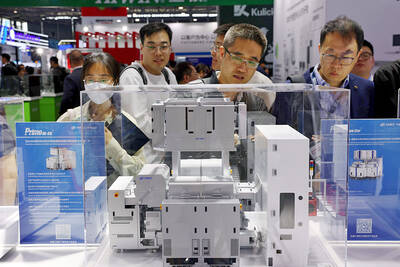Apple’s new and bigger iPhone 6 and iPhone 6 Plus are more durable than last year’s model and a leading Android phone, a study says.
Apple’s iPhone 6, whose screen measures 4.7 inches, did the best across a variety of tests that measures how prone smartphones are to break due to everyday accidents, says SquareTrade, a company that provides extended protection plans.
The iPhone 6 Plus, whose screen measures 5.5 inches, was not far behind, but lost points because it could slip out of a person’s hand since some users may have a hard time gripping its large but slim form, SquareTrade says.
The iPhone 5s, which measures 4 inches and came out last year, fared better than Samsung’s Galaxy S5, which measures 5.1 inches.
The Samsung phone got poor marks on several tests, including the slide test.
The more a phone slides, the greater its chance of falling off the edge of a table.
Still, all four of the smartphones tested had a medium risk of breakage and had no drastic differences among them.
“The phones are getting more and more durable,” SquareTrade chief marketing officer says Ty Shay said.
“Manufacturers are paying more attention,” he said.
SquareTrade examines the phones based on eight factors, including size, weight, grip and the quality of the front and back panels.
The company measured how far the phones slide when pushed across a table on their backs and how well they withstand drops from 1.2m and being dunked in water for 10 seconds.
SquareTrade says it uses robots to do the testing to ensure consistency, and rates the phones on a 10-point durability scale, with 10 signifying the highest risk.
Apple’s iPhone 6 scored the best at 4; the iPhone 6 Plus scored a 5; the iPhone 5s a 6; and Samsung Galaxy S5 a 6.5.
Apple’s iPhone 6 and iPhone 6 Plus passed the slide test, but the iPhone 5s and Samsung Galaxy’s S5 got poor marks in that area.
The iPhone 6 Plus was the only one that did not fare well when dropped 1.2m by the robot.
The glass screen survived, but the case separated from the glass. All four phones fared well in the water resistance test.
SquareTrade provided The Associated Press with the results ahead of yesterday’s announcement.
Aside from larger screens, the new Apple iPhones 6 and 6 Plus announced this month promises faster performance and offers a wireless chip for making credit card payments at stores by holding the phone near the payment terminal.
The phones start at US$199 with a two-year service contact. The phones went on sale this past week in the US and nine other countries.
Data of Apple’s new iPhones, released last week, show that consumers generally favor the larger-screen version, which is likely to benefit certain suppliers in Taiwan, according to a CIMB Securities Ltd report on Wednesday last week.

SEMICONDUCTOR SERVICES: A company executive said that Taiwanese firms must think about how to participate in global supply chains and lift their competitiveness Taiwan Semiconductor Manufacturing Co (TSMC, 台積電) yesterday said it expects to launch its first multifunctional service center in Pingtung County in the middle of 2027, in a bid to foster a resilient high-tech facility construction ecosystem. TSMC broached the idea of creating a center two or three years ago when it started building new manufacturing capacity in the US and Japan, the company said. The center, dubbed an “ecosystem park,” would assist local manufacturing facility construction partners to upgrade their capabilities and secure more deals from other global chipmakers such as Intel Corp, Micron Technology Inc and Infineon Technologies AG, TSMC said. It

EXPORT GROWTH: The AI boom has shortened chip cycles to just one year, putting pressure on chipmakers to accelerate development and expand packaging capacity Developing a localized supply chain for advanced packaging equipment is critical for keeping pace with customers’ increasingly shrinking time-to-market cycles for new artificial intelligence (AI) chips, Taiwan Semiconductor Manufacturing Co (TSMC, 台積電) said yesterday. Spurred on by the AI revolution, customers are accelerating product upgrades to nearly every year, compared with the two to three-year development cadence in the past, TSMC vice president of advanced packaging technology and service Jun He (何軍) said at a 3D IC Global Summit organized by SEMI in Taipei. These shortened cycles put heavy pressure on chipmakers, as the entire process — from chip design to mass

Germany is to establish its first-ever national pavilion at Semicon Taiwan, which starts tomorrow in Taipei, as the country looks to raise its profile and deepen semiconductor ties with Taiwan as global chip demand accelerates. Martin Mayer, a semiconductor investment expert at Germany Trade & Invest (GTAI), Germany’s international economic promotion agency, said before leaving for Taiwan that the nation is a crucial partner in developing Germany’s semiconductor ecosystem. Germany’s debut at the international semiconductor exhibition in Taipei aims to “show presence” and signal its commitment to semiconductors, while building trust with Taiwanese companies, government and industry associations, he said. “The best outcome

Semiconductor equipment billings in Taiwan are expected to double this year, as manufacturers in the industry are keen to expand production to meet strong global demand for artificial intelligence applications, according to SEMI, which represents companies in the electronics manufacturing and design supply chain. Speaking at a news conference before the opening of Semicon Taiwan trade show tomorrow, SEMI director of industry research and statistics Clark Tseng (曾瑞榆) said semiconductor equipment billings in Taiwan are expected to grow by an annual 100 percent this year, beating an earlier estimate of 70 percent growth. He said that Taiwan received a boost from a